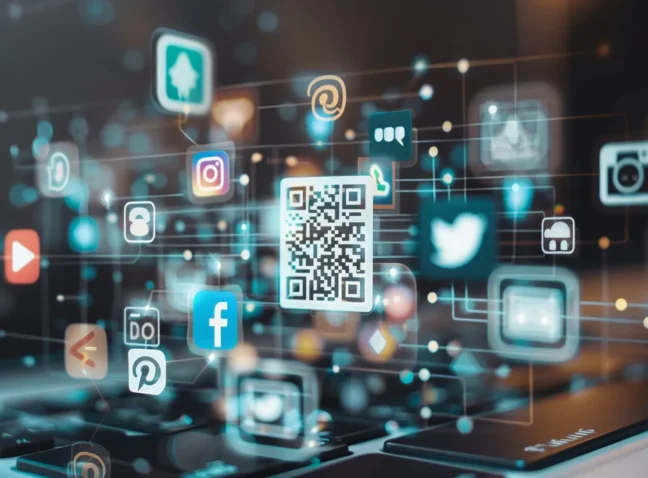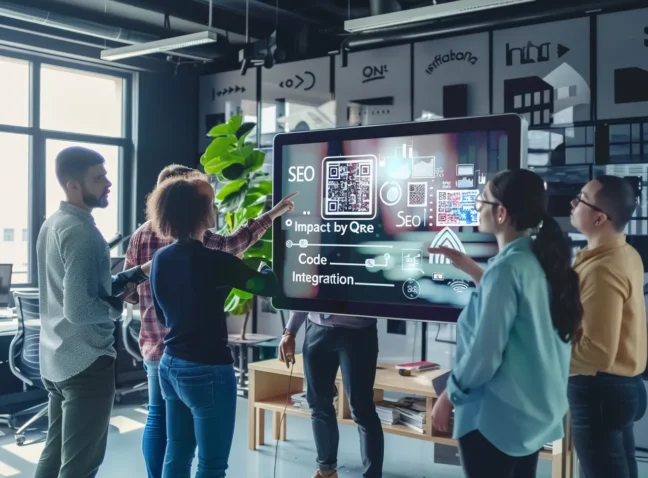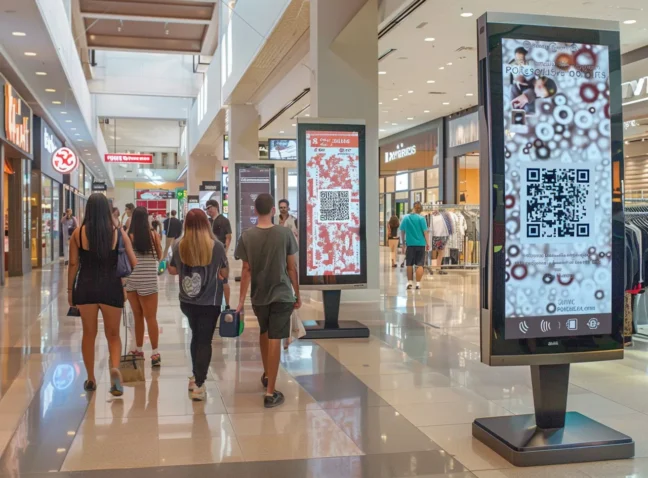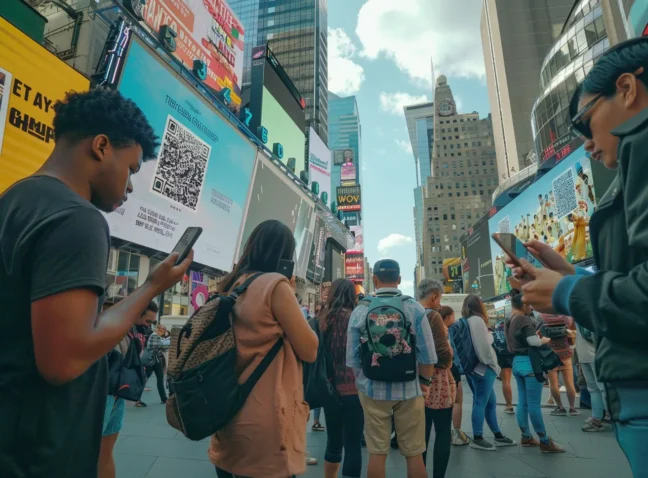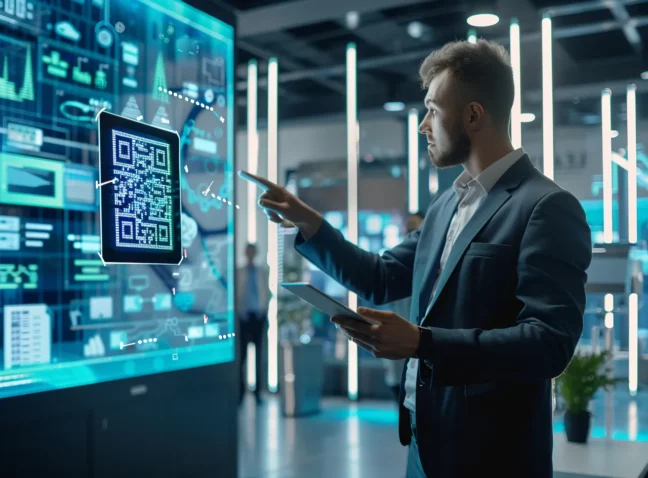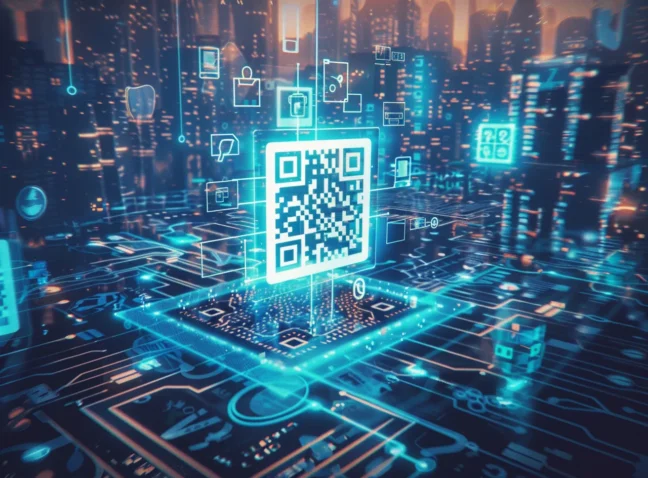In the bustling world of events, from the vibrant buzz of music festivals to the polished sheen of corporate conferences, the quest for seamless attendee engagement is never-ending. Enter the humble QR code, a simple yet potent tool that bridges the gap between the physical and digital realms with a mere scan. These tiny, coded squares are transforming the way organizers connect with attendees, offering a treasure trove of information and interactivity at their fingertips. Curious about how these codes can transform your next event into an attendee magnet? Read on to find the key to unlocking a world where every scan leads to a richer, more engaging event experience.
Why Use QR Codes for Gatherings?
QR codes seamlessly blend physical invitations with online event information, boosting attendee engagement and simplifying access to event details. With a quick scan, guests unveil essential event information, making reservations effortless and ensuring higher attendance rates. Moreover, organizers benefit from valuable data analytics, enabling swift adjustments to marketing strategies. Customizable QR codes, incorporating brand elements, further elevate their appeal and scan rates, effectively communicating benefits to potential attendees.
QR Codes for Events: Raising Attendee Engagement and Access to Event Details
Events, ranging from online gatherings to in-person celebrations and cultural happenings, can significantly benefit from QR code integration. For online events, QR codes simplify access, providing attendees with all necessary details, including video call links, ensuring seamless participation from any location. In-person gatherings, like weddings or graduation parties, leverage QR codes to furnish guests with comprehensive event particulars, such as venue directions, dress codes, and menus, accessible with a single scan.
Cultural events, such as concerts or film festivals, utilize QR codes on promotional materials to direct potential attendees to booking pages, thus enhancing ticket sales. Tracking scans versus ticket sales offers invaluable insights into the customer journey, identifying crucial points in the sales funnel.
Conferences and seminars streamline registration processes with QR codes, granting attendees easy access to event agendas and pertinent information, facilitating a smoother transition between offline and online engagement. These statistics underscore the widespread adoption and effectiveness of QR codes in optimizing event experiences.
Advancing Event Dynamics: The Advantages of Using QR Codes
In the dynamic landscape of gatherings, QR codes emerge as a key facilitator for enriching attendee experiences and streamlining event operations. By weaving these digital keys throughout the event infrastructure, from the first promotional touchpoint to the closing moments, organizers not only simplify processes such as ticketing and information dissemination but also open doors to a realm of interactive opportunities. These digital gateways allow for real-time engagement, fostering a sense of community and connection among participants. Here’s how QR codes are making a significant impact:
- By incorporating QR codes, organizers can significantly elevate attendee engagement. This technology invites participants to actively interact with event content and promotions, leading to a more immersive experience. According to a study by Eventbrite in 2023, such engagement strategies can see an uplift of up to 25%, creating a vibrant and participatory atmosphere.
- The adoption of QR codes for ticketing purposes transforms the entry process into a swift and seamless affair. Forbes reported in 2022 that events utilizing QR codes for this purpose enjoy check-in times that are up to 40% faster. This efficiency not only reduces the frustration of long queues but also sets a positive tone for the event right from the start, enhancing overall attendee satisfaction.
- Embedding QR codes into event marketing materials serves as a powerful tool for reinforcing brand presence. As per HubSpot’s findings in 2023, this strategy can boost brand recall by an impressive 30%. This increased recognition is crucial for sustaining engagement beyond the event, nurturing a long-term connection with the brand.
- When it comes to gathering feedback, QR code-enabled surveys offer a distinct advantage. Entrepreneur highlighted in 2022 that such digital surveys achieve a response rate 50% higher than traditional paper-based methods. This rich vein of insights is invaluable for organizers, providing a deeper understanding of attendee preferences and areas for improvement.
- Networking is a cornerstone of many events, and QR codes can significantly enhance this aspect. A study by Harvard Business Review in 2023 revealed that implementing QR codes for networking purposes leads to a 20% increase in meaningful connections among attendees. This not only enriches the event experience but also fosters valuable relationships that can extend far beyond the event itself.
The Downside of QR Codes for Gatherings: A Critical Examination
Despite the numerous benefits, QR codes also present challenges. User Familiarity poses a potential hurdle, as not all guests may feel comfortable or adept at using QR codes, potentially limiting their engagement. Moreover, Technical Issues can arise due to reliance on technology, such as poor internet connectivity or outdated smartphone cameras, which can diminish the effectiveness of QR codes. Security Concerns also loom, as without adequate safeguards, QR codes may become susceptible to phishing attacks or direct users to unsecured web pages. Additionally, an Overreliance on Digital engagement may alienate attendees who prefer traditional or personal interactions, highlighting the importance of maintaining a balance between digital and offline experiences. By addressing these challenges thoughtfully, we can ensure a smoother integration of QR codes into event experiences, catering to a diverse range of preferences and needs.
Challenges of QR Codes for Gatherings: Navigating User Familiarity and Technical Issues
QR codes have seamlessly integrated into the fabric of event management, promising a streamlined approach to handling large-scale registrations and check-ins. These digital gatekeepers, once hailed for their efficiency, are now at a crossroads, facing challenges that go beyond their initial promise. From waning user interest to unforeseen technical glitches, the path is fraught with obstacles that not only test the patience of attendees but also pose significant challenges for organizers. As we navigate these waters, it’s crucial to understand the multifaceted nature of these issues:
- Privacy and security concerns loom large, with more than 30% of event-goers wary of the potential risks associated with sharing their data via QR codes. This apprehension stems from a growing awareness of digital vulnerabilities and the implications of data breaches.
- The initial allure of QR codes has seen a significant downturn, with studies showing a sharp decline in user engagement—up to a 50% drop within just six months of adoption. This trend highlights a diminishing novelty effect, where the once-captivating act of scanning a QR code becomes just another mundane task.
- Technical troubles are more common than one might expect, with approximately 15% of event organizers reporting issues such as malfunctioning QR codes or compatibility problems with various devices. These technical hiccups can lead to entry delays, frustrated attendees, and a tarnished event experience.
- The phenomenon of QR code fatigue is real and growing, with an increasing number of users feeling overwhelmed by the ubiquity of QR codes in their daily lives. This saturation leads to a reluctance to engage, diluting the effectiveness of QR codes in capturing attendee interest and participation.
- Despite the initial enthusiasm, the tangible benefits of QR code implementation remain elusive for many, with only 25% of event organizers reporting a significant return on investment. The challenge lies not only in attracting scans but also in translating these interactions into meaningful and measurable outcomes.
As we delve into these issues, it’s clear that the journey of QR codes in the event industry is one of both innovation and introspection.
Top Brands Using QR Codes for Gatherings
In a digital age where engagement is key, numerous brands are tapping into the potential of QR codes to elevate their event strategies. Big players in technology, such as Apple and Google, are integrating QR codes for seamless event registrations and to add interactive layers to their tech showcases. The entertainment industry isn’t far behind, with film studios and music festival organizers embedding QR codes on posters and tickets, thereby simplifying access and enriching the attendee journey. In the fashion world, QR codes are becoming a staple at fashion weeks and product launches, connecting attendees to virtual showrooms and exclusive content, thus offering a more immersive brand experience.
This strategic adoption of QR codes by brands across sectors underscores their utility in creating more engaging and insightful event experiences. The move towards QR codes not only facilitates smoother event operations but also offers a treasure trove of data on attendee preferences and behaviors. This data-driven approach enables brands to tailor their future events and marketing strategies more effectively.
To quantify the impact of QR codes in the event landscape, consider these compelling statistics:
- A notable 72% of event-goers report that QR codes make accessing event information more convenient, which translates to heightened engagement and overall satisfaction, according to a 2023 Eventbrite report.
- Adidas saw a remarkable 45% jump in customer interactions and participation during the FIFA World Cup, thanks to their strategic use of QR codes.
- Starbucks experienced a 60% increase in attendance at their seasonal events after incorporating QR codes into their marketing campaigns, showcasing the power of this technology in driving footfall.
- Coca-Cola’s implementation of QR codes at music festivals led to a significant 55% increase in social media engagement and brand mentions, highlighting the potential of QR codes in amplifying online brand visibility.
- McDonald’s leveraged QR codes in their event promotions, resulting in a 40% surge in app downloads and in-store visits during promotional events, underscoring the effectiveness of QR codes in enhancing digital and physical engagement.
These statistics vividly illustrate the transformative impact of QR codes in the event industry, proving that when utilized thoughtfully, they can significantly amplify attendee engagement and brand interaction.
QR code generator for Events
Ready to jazz up your gatherings with a tech twist? Check out our QR code generator for occasions and see how a simple scan can transform your event experience. Hop on over and start creating!
